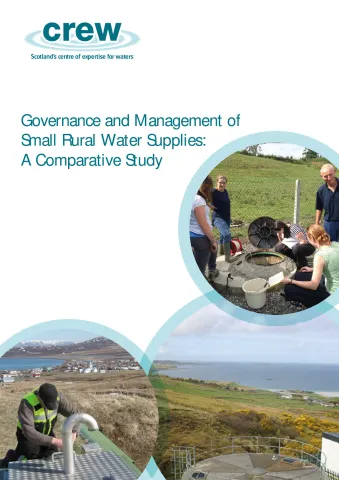Small scale and rural water supplies present well-recognised problems to policymakers, regulators, service providers, communities and water users, all over the world. Small supplies across the European Union and internationally have been associated with inconsistent, or lower than required, frequency of monitoring and reporting of their status; non-compliances with microbiological and chemical quality standards; and unclear legal responsibilities for both operators and regulators in the case of a disease outbreak or non-compliances (Sinisi & Aertgeerts 2011; Rickert & Schmoll 2011; Eureau 2011; WHO 2012; European Commission 2014a; 2014b). This study was designed to make a wider comparative analysis of the governance, regulation and management of small rural water supplies across Member States of the European Union and other jurisdictions, and then make an in-depth analysis of selected case studies, supplemented by interviews and a stakeholder workshop.
This research clearly demonstrated that there are similar problems with small supplies all over the world; and that governance frameworks are relevant regardless of the form of ownership or type of management. It also showed that there are still many issues around definitions and terminology which can confuse the debate, as well as difficulties with consistency of data. Risk assessment, for example through Water Safety Plans, is a focus for service delivery at every scale, but for small and very small supplies, it is especially important to provide clear, userfriendly information and support, which is easily accessible to users. It is also important that obligations for suppliers and users are clear and understandable.
